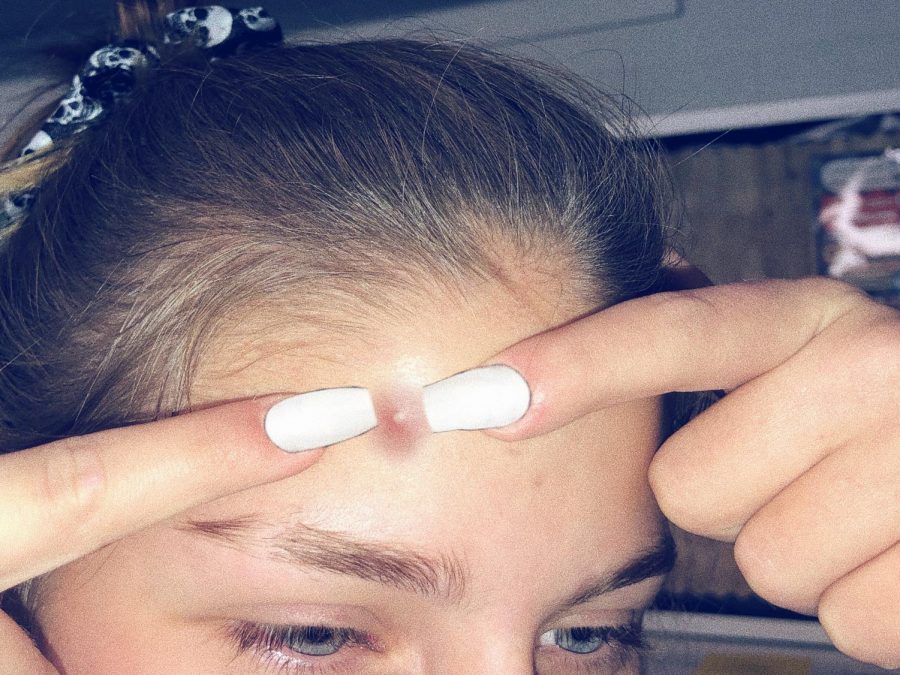Teen acne uncovered: Truth vs Myth
October 24, 2019
An estimated 85 percent of teens in America suffer from acne, according to Dr. Philina Lamb, an assistant professor of dermatology at UC Davis Medical Group.
Acne is caused by bacteria deep in the skin’s pores. The bacteria plugs the skin’s hair follicles due to irritation. Acne comes in different forms. These include: cysts, whiteheads, blackheads, and pustules.
The Scribe conducted a survey on acne, and many students responded claiming acne made them feel “insecure, unhealthy, and gross.”
Peter Hayes, MD, a local dermatologist said vitamin A is effective in treating acne. Vitamin A unplugs the hair follicles. Many of the common prescriptions for acne like accutane he said are vitamin A derivatives.
Junior, Riley Andrews, said “Chocolate makes me break out shortly after I eat it.” Although many people claim diet to resolve acne, there’s not a lot of evidence to prove this. Peter Hayes, MD addressed the myth of greasy food causing acne.
“It’s not necessarily greasy foods that give you acne,” said Dr. Hayes. “But, it’s the grease that gets on your face from eating the food.”
Furthermore, Megan Gaic, a Holistic Nutritionist for acne, says it is not the food that breaks you out, but the stress that comes from eating the food. Many people believe they will break out from certain foods before they eat them. Gaic said, “Scientifically, it’s the stress that spikes the hormones, causing acne.”
Although there’s no direct correlation between food and acne, there are better foods for your skin than others. Carissa Padovano from Bexley Dermatology said, “Less processed foods that are low in sugar, and dairy will be the healthiest for your skin.”
Lastly, Dr. Hayes and Padovano spoke about many misconceptions with teen skincare. With many commercial products, such as face masks or scrubs, being promoted in magazines and YouTube videos, teens have been mislead to believe that these are effective methods in treating acne. Of the students polled, 72 percent said they use these commercial products.
Teens often use these products as a part of their daily regimen, which Dr. Hayes explained is an overuse; he said they are too harsh.
Dr. Hayes claimed this overload of products will actually clog the pores, which leads to more acne. Instead, he recommends routinely using a milder cleanser such as CeraVe or Cetaphil. “Consistency is key in getting rid of acne,” said Dr. Hayes.





